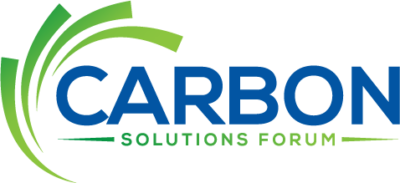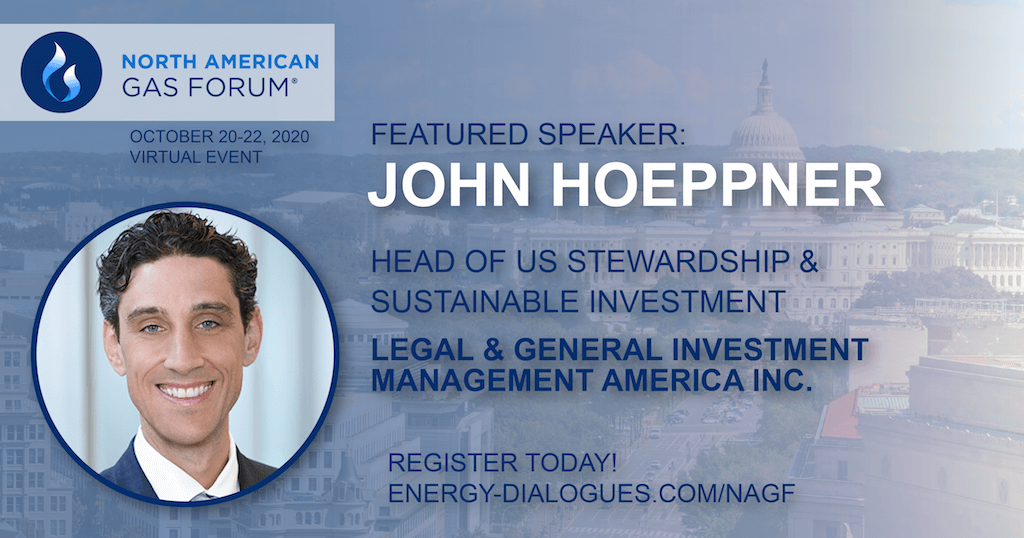Interview with John Hoeppner, Head of US Stewardship & Sustainable Investments at Legal & General Investment Management America
We had the pleasure of interviewing John Hoeppner, Head of US Stewardship and Sustainable Investments at Legal & General Investment Management America.
John will be joining us as a panelist at this year’s North American Gas Forum, where he will be discussing investors’ perspectives on natural gas and ESG performance, as well as other topics briefly discussed in this interview.
We invite you to read the full interview below.
ED: Can you tell us a little about your role at Legal & General and how you see the natural gas industry being influenced by global trends?
JH: I am part of a 16 person Global Investment Stewardship team – I lead our US strategy. Our remit is to use our influence (~1.5T AUM) to impress positive changes for long-term sustainability at companies and markets. The range of stewardship activities include: direct company engagements, collaborative engagements, regulatory/industry engagements, proxy voting, media engagements contributing to proprietary ESG metrics/analysis which impact investments throughout our organization. One of our flagship engagement campaigns is the Climate Impact Pledge – the results from last year are included here.
Of course there are all sorts of global trends that have differing impacts on natural gas industry. From a stewardship perspective, we are particularly focused on methane emissions, stress-tests against a wide range of scenarios, and full environmental disclosure. Additionally, on the fundamental side, in many cases we are engaging with executive teams that need to manage through ex-growth or mature industry status which have different implications on strategy and capital allocation decisions.
ED: Recently the Atlantic Coast pipeline was canceled by developers, the Dakota Access pipeline was shut down by a federal judge and the Trump administration lost its Supreme Court bid to resuscitate the Keystone XL pipeline. On the other hand, you have Warren Buffet investing $9.7 billion on Dominion Energy’s gas pipeline. In your opinion, how are these latest announcements impacting pipeline investments? What do they tell us about how investors are viewing the industry?
JH: Regulatory uncertainty has increased immensely with the Dakota Access pipeline decision. And we do not expect it to subside with the potential change in administration. The major impact of this uncertainty is an increased value of energy infrastructure that has already been built. DAPL was a very unique situation as the pipeline had been operating for 3 years safely prior to the decision. And the lawsuit pre-dates the start of operation. There is no analogous situation for any other existing pipelines. We believe there is meaningful value in energy infrastructure and logistics assets, particularly if they have a good operating track record. But all energy infrastructure is not created equal. There are going to be winners and losers depending on geography and the type of energy these assets are handling. While it is difficult to generalize, we tend to favor natural gas-oriented infrastructure, which would coincide with Berkshire Hathaway’s strategy with the Dominion Energy assets.
ED:Is the current pandemic accelerating or slowing down focus on ESG? Will the integration of sustainability into business models become the “new normal”?
JH: Focus on ESG is accelerating by every measure – every day consumer decision, end client / investor demand for ESG products, internal product development, continuous investment process enhancements, research analyst interest / effort with ESG and corporate engagement requests for blue sky conversations about ESG profile and enhancements. Specific to the pandemic, as many market commentators have observed, “Social” factors inside of ESG have experienced the spotlight through employee safety, lay-off/furloughs, supply chain troubles, CEO pay , remote working considerations, workforce diversity, etc. I suspect many of these factors will remain elevated for some time, but the overarching impact is the understanding that ESG factors can enhance understanding of corporate strategy.
ED: Given the current landscape, is ESG currently a priority for investors?
JH: Yes, ESG is a growing priority for many investors. Exactly how important a priority varies dramatically. For example, one generalization would be in Europe the priority is being driven by regulatory developments – many of which are looking to mitigate long-term systemic risks, whereas in the US, ESG is being driven by the pursuit of outperformance. Those differences mean the type of analysis, metrics and intensity of influence may differ across markets and investor types.
It is difficult to predict how and when investors will tilt or draw redlines related to methane emissions and the companies that are the largest emitters. I guess the simple answer is that as data on methane emissions improves and is increasingly used by investors, those companies that have relatively worse profiles and aggregate stats than their peers are likely to lose long-term investors.
Join John Hoeppner and other leading panelist at this year’s virtual North American Gas Forum on October 20-22, 2020






